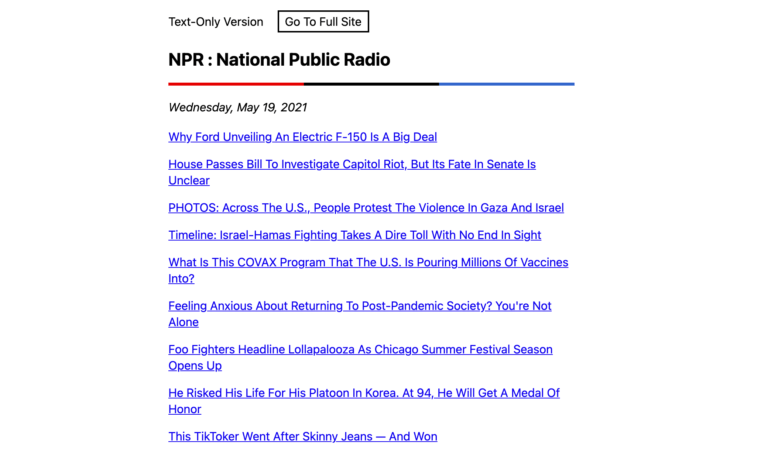Content marketing is essential in any digital marketing strategy if you want to attract and engage your audience. But creating an effective content marketing strategy is no easy task, with many potential mistakes you’ll need to avoid. To help you, we’ve covered 7 fall downs and pick-ups in content marketing.
Importance of an effective content strategy
Table of Contents
- 1 Importance of an effective content strategy
- 2 Fall down #1 – No plan or long-term goal
- 3 The pick-up
- 4 Fall down #2 – Ignoring or not using data
- 5 Fall down #3 – Not creating reusable content
- 6 Fall down #4 – Limited content types
- 7 Fall down #5 – Not understanding your customers
- 8 Fall down #6 – Lacking a schedule
- 9 Fall down #7 – Pushing promotional or sales content
- 10 Conclusion
An effective content marketing strategy is important for any business to help reach new prospective customers and boost sales. It’s all about delivering content that is both relevant and helpful throughout each stage of the customer journey.
Content marketing is about showcasing your brand’s value to help build relationships and trust with your audiences. Effective content marketing will address your potential customer’s pain points and provide answers to their questions.
Unlike paid advertising which results in short-term growth, content marketing strategies provide long-term business growth. Around 67% of marketers report their content marketing efforts to generate leads, according to the Content Marketing Institute.
It’s also worth noting that content marketing is one of the most important ranking factors for Google. Not only will an effective content marketing strategy win over your customers, but it will also boost your search engine rankings.
To summarise, content marketing is important to:
- Build trust
- Increased lead generation and conversions
- Stronger online presence and brand awareness
- Become an authority in your area
- Provide value
- Higher website traffic
- Increased sales
Spotting these content marketing mistakes quickly and understanding how to address them can do wonders for generating leads and conversions. To help you deliver the high-quality content that your customers have come to expect, here are 7 content marketing fall downs and pick-ups.
Fall down #1 – No plan or long-term goal

The first fall down you can make with your content marketing strategy is not having a plan or long-term goal. Successful content marketing will need a plan or goal. You should be able to identify what it is you want to achieve with your content strategy. If you can’t, you’re in trouble.
Without this focus, your content marketing strategy will be misguided and won’t be focusing on the bigger picture. Creating content ad hoc is a sure way to lead to an ineffective and failing content strategy. It’s pointless spending all that time and effort on content that won’t drive worthwhile results.
The pick-up
The pick-up for this fall down is to make sure you establish a long-term plan or goal for your content marketing. Ask yourself, what do I want to achieve with my content marketing? To improve the clarity and focus of your content strategy, make sure your goals are SMART:
- Specific – clear and specific goals are easy to work with and achieve
- Measurable – adding a measurable component allows you to measure success
- Achievable – make sure the goal is achievable and identify the steps you can take to achieve it
- Relevant – is the goal relevant to your business?
- Timely – when do you want to achieve your goal?
Fall down #2 – Ignoring or not using data

Another common fall down in content marketing is ignoring the data. Many businesses will fall into the trap of developing content ideas they think would be a good fit for their business or customers. Throwing ideas at the wall and seeing what sticks only leads to disaster.
The pick-up
Every content strategy should revolve around data. Data should be placed at the start and finish of content creation. Data-driven content strategies can help inform your content creation, allowing you to see what works and what doesn’t.
Data should inform both the start and finish of content creation. Using data from Google Analytics and other tools allows you to measure the success of your content strategy against your goal and campaign KPIs.
Fall down #3 – Not creating reusable content
Creating high-quality content can take a lot of time and effort. Yet many businesses will fail to see the value of reusing existing content. Chances are you have a wide library of material you can reuse. Content marketing doesn’t and shouldn’t just focus on developing new content.
A one-and-done approach to publishing content not only uses valuable resources but can also eat away at your return on investment. Content developed with a short shelf life that’s soon forgotten about is a waste.
The pick-up
Picking up from this content marketing fall-down is simple. Make use of what you have by repurposing content. Whether it’s a long-form blog post that can be repurposed into a guide or a tutorial that can be repurposed into a video.
Secondly, most, if not all of your content should also be evergreen. Evergreen content is content that continues to stay relevant. Creating content on trending and topical issues is all very well at the time, but what happens to that content in the future? It becomes outdated and unusable again.
Fall down #4 – Limited content types

Another common fall down in content marketing is not taking full advantage of the wide range of content types available. If you are stuck in the process of continually churning out blog posts or social media posts, your content marketing strategy is experiencing another fall down.
The pick-up
There are lots of different content types, including written, visual, and audio. A successful content strategy will make use of a variety of different content types, not just one. When planning your next piece of content, consider if it works better as another content type, such as:
- Infographics and images
- Short-form and long-form videos
- Podcasts
- Webinars
- Checklists and how-to guides
- Whitepapers
- Case studies
Fall down #5 – Not understanding your customers

Similarly to not using data, not knowing or understanding your customers is another fail. No matter how good a piece of content is, if it’s not right for your audience, it’s irrelevant.
You cannot deliver value to your customers through your content if you don’t know who they are. In many instances, there is a gap between what a company thinks its customers want and what their customers actually want.
Around 63% of customers state they don’t feel understood by the brands they love, according to a study by IBM. This content marketing fall down can be easy to get into, but a tough one to try and get out off.
The pick-up
To ensure you are developing content that is right for your customers, you should be creating buyer personas. These are semi-fictional representations of your customers. An effective buyer persona will be informed by the data and insights you gain about your customers.
A buyer persona will seek to identify:
- Who your audience is (demographics)
- What are their needs or behavior (behavioral)
- Values, lifestyle, and interests (psychographics)
- Goals and challenges
- Habits and preferences
A well-defined buyer persona will be supported by research. Nothing in your buyer persona should be purely speculative otherwise it doesn’t accurately reflect your audiences. For the best results, you should develop a buyer persona for each of your audiences (limiting yourself to no more than 5).
Fall down #6 – Lacking a schedule

How often do you publish a piece of content? Do you stick to a schedule? If not, your content marketing strategy is experiencing another fall-down. If you want to be growing your business online, you need to be sticking to a schedule to help create consistency and keep you organized.
Without a schedule to provide the bigger picture, your content strategy will lack focus and become chaotic. It also reflects badly on your target audience if they have long periods without any content updates.
The pick-up
For each month, consider setting up a content schedule for the content that will be created and published. Try to keep this calendar as visual as possible and easy to understand. Using your content schedule, you should be able to plan your campaigns across different platforms too.
Your content schedule should also include a review or approval process. No piece of content should ever be published before it is checked. Every piece of content needs to reflect the style of the brand. Content can also contain inaccuracies and mistakes, which can easily be avoided.
Make sure at least one peer reviews a piece of content before you hit the publish button. Monitoring the review process can be tricky, but using a project management platform can make it much easier. Trello, ClickUp, and Asana are project management platforms to consider.
Fall down #7 – Pushing promotional or sales content
Being over-promotional or pushing out too much sale-related content is one of the biggest content marketing mistakes many businesses make. While every business wants to try to increase sales or usage of products and services, taking an overly promotional approach is the wrong way.
It’s a similar situation to someone who is always bragging about how good they are. People get bored and tired of listening surprisingly fast. The same goes for your customers. Constantly putting out content that tries to gain a sale will just cause people to unfollow.
No matter what type of content you use, the same rules apply. When people view your content, they are not interested in how great you are. Whether it’s a blog post, a social media video, or a podcast, none of the above content marketing tips will be worthwhile.
The pick-up
The pick-up for this content marketing mistake is obvious. Stop being overly promotional or sales-focused in your content marketing. Instead, create content that focuses on your customers and what matters to them. In the long run, this will benefit your business much more than just another sales blog.
By no means does it mean you cannot publish promotional content, far from it. You need to create content for all stages of the buyer’s journey. Not just those at the awareness or consideration stages. The general rule of thumb is an 80/20 balance.
80% of your content should be tailored to your audiences by providing relevant and helpful solutions to their questions and pain points. The other 20% is about your business. You don’t have to stick right to these numbers, but it gives you a good idea of how to balance your content creation.
Conclusion
Developing an effective content marketing strategy is not easy. With so many easy fall downs, it can be hard to continue providing value to your customers. But being aware of the fall downs and how you can pick yourself up again will stand you in good stead to develop an effective content strategy.






